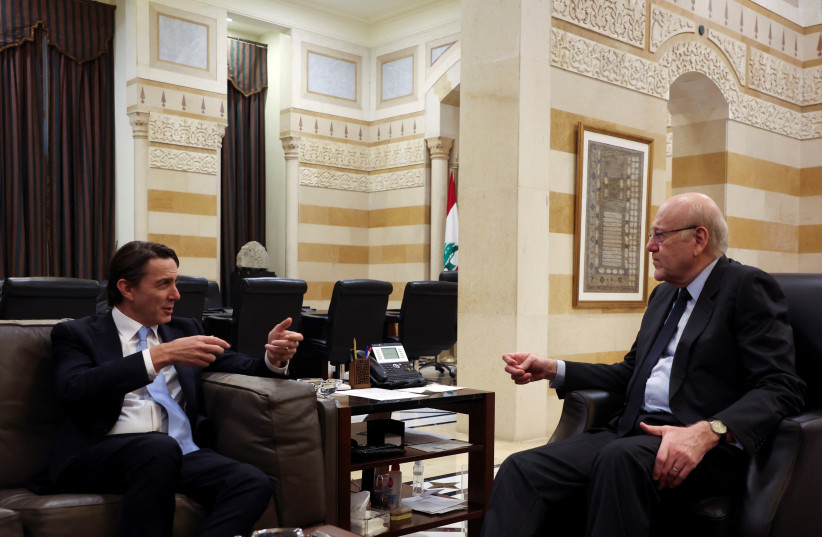Indirect talks on an end to hostilities along the Lebanese-Israeli border will begin during the Muslim holy month of Ramadan which starts next week, Lebanon's caretaker prime minister Najib Mikati said on Tuesday.
The powerful Lebanese terror group Hezbollah and Israel have been exchanging fire for nearly five months in parallel with the Gaza war, prompting diplomatic efforts aimed at staving off an escalation.
In an interview Tuesday night with local Lebanese broadcaster Al Jadeed, Mikati said Lebanon's parliament speaker Nabih Berri - who is close to Hezbollah - was studying a proposal suggested verbally by US envoy Amos Hochstein, who was in Beirut on Monday.
Attempts to implement UN resolution and end conflict
Mikati said the proposal centered on how to fully implement United Nations Security Council Resolution 1701, which ended the month-long war fought in 2006 between Hezbollah and Israel.
It calls for a withdrawal of non-state armed actors from southern Lebanon and a deployment of up to 15,000 Lebanese army troops. Lebanon has accused Israel of violating the resolution more than 30,000 times and says it would be ready to implement it fully.

Mikati said he planned to speak to Hochstein within the next 48 hours about the proposal, particularly to learn Israel's position as the US envoy traveled on to Tel Aviv from Beirut.
He said the timeline for implementation was "elastic."
Deputy secretary-general of Hezbollah Naim Qassem told the Lebanese LBCI news channel on Tuesday night that there is a "90% chance that there will not be a large-scale war in Lebanon."
Qassem insisted that Lebanon has not been brought "closer to an all-out war," but added that Hezbollah is ready for such a war even "if it happens tomorrow."
The Hezbollah deputy leader insisted that Hezbollah wasn't acting to turn Lebanon into a battlefield and was instead trying to prevent Lebanon from turning into a battlefied. Qassem claimed that the terrorist movement is acting "defensively" and is trying "not to drag Lebanon into war."
Qassem added that once there is a ceasefire in Gaza there will be a ceasefire in Lebanon and insisted that talks about the border between Lebanon and Israel could only take place after a ceasefire in Gaza.
